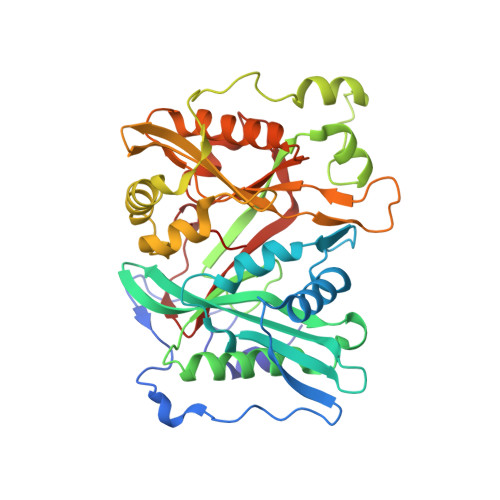Identification of potent and selective N-myristoyltransferase inhibitors of Plasmodium vivax liver stage hypnozoites and schizonts.
Rodriguez-Hernandez, D., Vijayan, K., Zigweid, R., Fenwick, M.K., Sankaran, B., Roobsoong, W., Sattabongkot, J., Glennon, E.K.K., Myler, P.J., Sunnerhagen, P., Staker, B.L., Kaushansky, A., Grotli, M.(2023) Nat Commun 14: 5408-5408
- PubMed: 37669940
- DOI: https://doi.org/10.1038/s41467-023-41119-7
- Primary Citation of Related Structures:
8FBQ - PubMed Abstract:
Drugs targeting multiple stages of the Plasmodium vivax life cycle are needed to reduce the health and economic burdens caused by malaria worldwide. N-myristoyltransferase (NMT) is an essential eukaryotic enzyme and a validated drug target for combating malaria. However, previous PvNMT inhibitors have failed due to their low selectivity over human NMTs. Herein, we apply a structure-guided hybridization approach combining chemical moieties of previously reported NMT inhibitors to develop the next generation of PvNMT inhibitors. A high-resolution crystal structure of PvNMT bound to a representative selective hybrid compound reveals a unique binding site architecture that includes a selective conformation of a key tyrosine residue. The hybridized compounds significantly decrease P. falciparum blood-stage parasite load and consistently exhibit dose-dependent inhibition of P. vivax liver stage schizonts and hypnozoites. Our data demonstrate that hybridized NMT inhibitors can be multistage antimalarials, targeting dormant and developing forms of liver and blood stage.
Organizational Affiliation:
Department of Chemistry and Molecular Biology, University of Gothenburg; S-405 30, Gothenburg, Sweden.
























